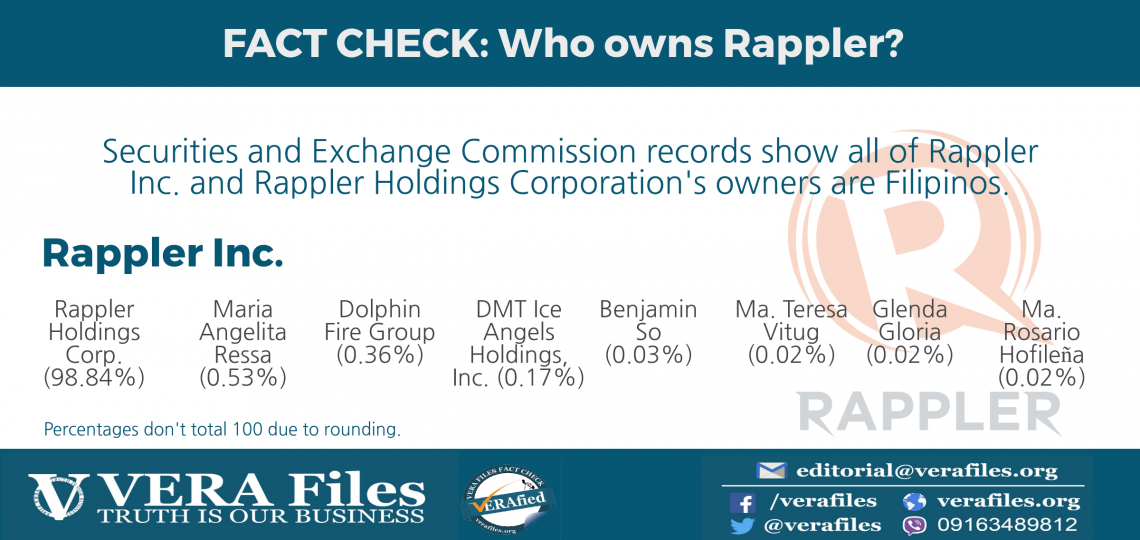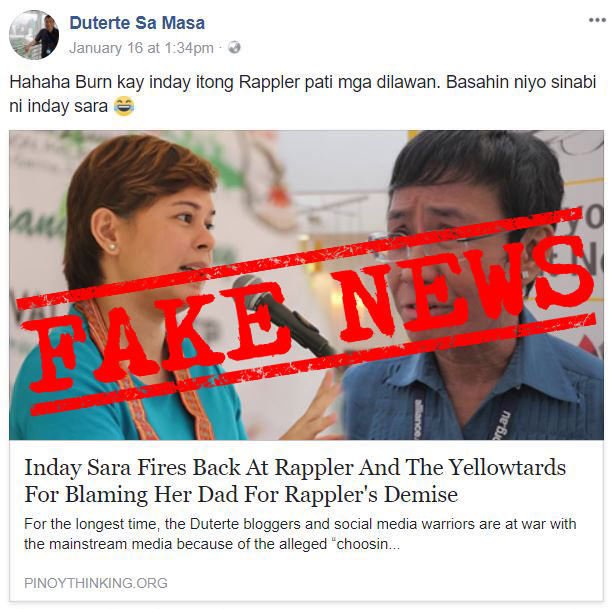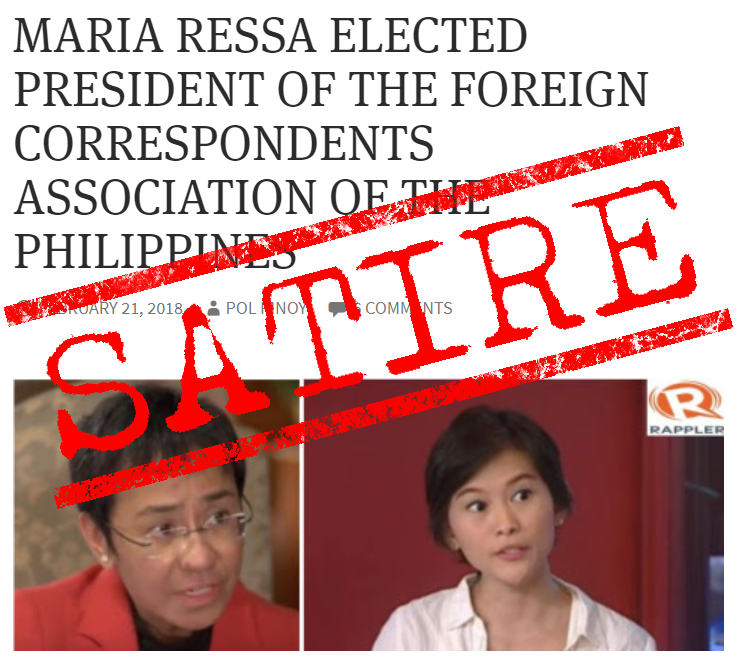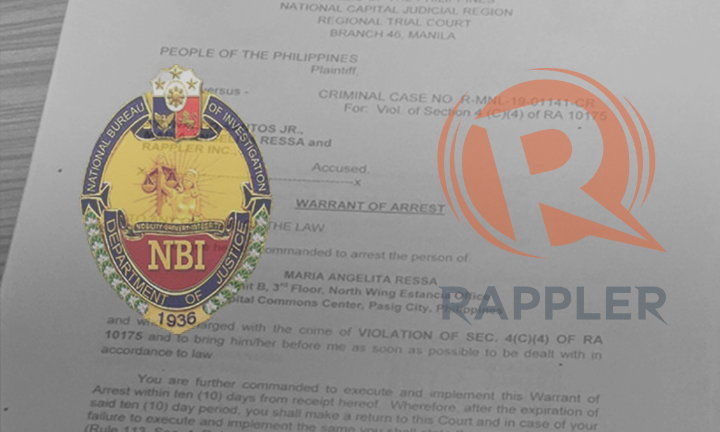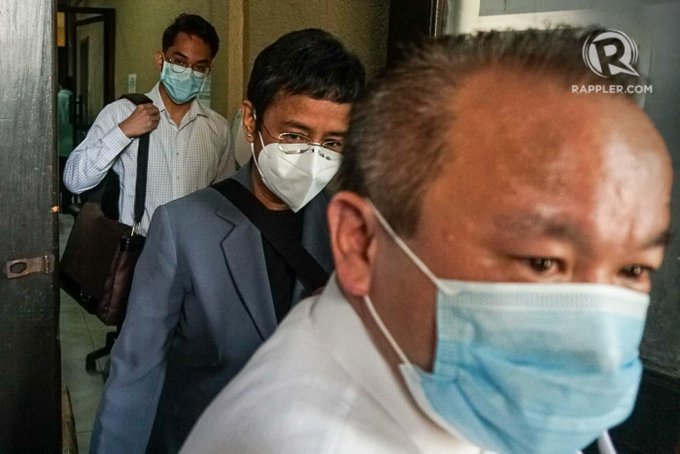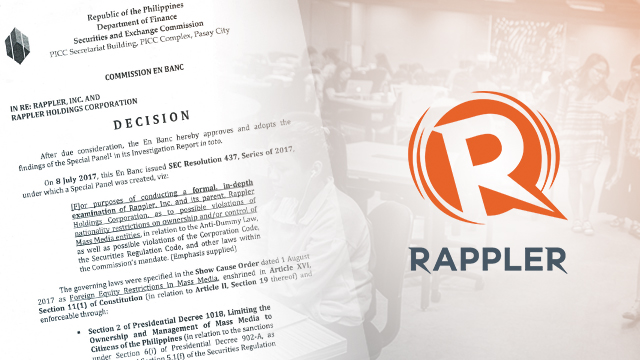
Photo from Rappler
Despite Malacañang’s denial, there is no doubt that the decision of the Securities and Exchange Commission to revoke Rappler’s registration as a media entity is a press freedom issue.
The SEC arguments seem solid for a non-lawyer like me but I wonder, had Rappler been supportive of Duterte, would the Office of the Solicitor General have filed a case questioning the ownership of Rappler?
On the other hand, even if Duterte hated Rappler, if SEC didn’t find anything amiss in their corporate makeup, would it have moved for the kill?
Journalist turned lawyer Romel R. Bagares posted this comment on Facebook which generated an informative discussion among his fellow lawyers, many of them advocates of free expression and are active in fighting the proliferation of fake news.
Bagares said the Rappler case is “A great case on a question of foreign ownership. But a hard case because it involves free expression and a perceived anti-government media firm. A bad case because while cancellation is well within the law, SEC could just as well have ordered divestment.”
Bagares explained that Philippine Depository Receipts or PDRs, an issue which the SEC used against Rappler, are “investment instruments allowed by law as long as holders only have economic rights to them, and not owners’ rights.”
“You get ROIs (return on investments) from PDRs, that’s it,” he added.
In revoking the certificate of incorporation of Rappler, the SEC said Rappler and Omidyar Network through PDRs skirted the Constitutional requirement that media companies in the Philippines should be 100 percent Filipino-owned.
Omidyar Network is a philanthropic investment firm, which was founded by American entrepreneur Pierre Omidyar, also the founder of eBay, and his wife Pam.
The SEC said Rappler-Omidyar PDRs contain the “repugnant provision wherein “Rappler is required to seek approval of the (Omidyar Network) PDR Holders on corporate matters.”
Bagares explained that the Omidyar PDRs give it the right to block any amendments to Rappler’s charter. Such a right only belongs to a share owner under the Philippine Corporation Code. Constitution says media should be 100-percent Phillippine-owned.
In the FB discussion, journalist Robert JA Basilio Jr. asked Bagares: “Meaning — generally, PDRs are legal except that the Omidyar PDR has special provisions reserved only for shareholders? Correct?”
To which Bagares replied: Yes yes yes yes yes!
Centerlaw, a non-stock, non-profit organization that works for the recognition and application of international law norms — specifically those relating to human rights, humanitarian law, freedom of expression, and freedom of the press — as automatic and self-executory parts of Philippine law, issued a statement saying “The alleged failure of Rappler to comply with constitutional restrictions on foreign ownership of Philippine media entities aside, the SEC’s decision is tantamount to prior restraint, and therefore comes with the heavy presumption of unconstitutionality.”
Centerlaw, currently headed by Joel Butuyan, was co-founded by Presidential Spokesman Harry Roque, who has now resigned from the organization.
Centerlaw stressed the irony that “The same constitution that prescribes restrictions on ownership of Philippine mass media is also the very constitution that has placed free expression at the topmost rungs of constitutional freedoms.”
The group also said that “what the SEC should have done was to give Rappler an opportunity to correct its ownership structure. Instead, the SEC got down to business right away with guns blazing.”
